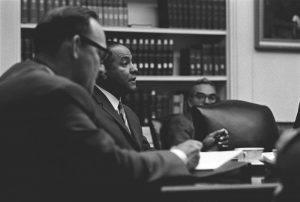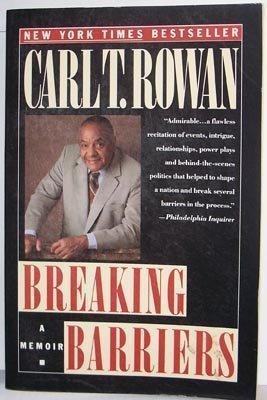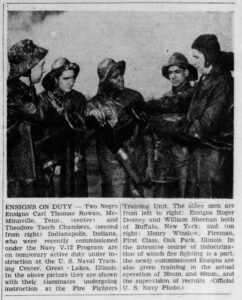Carl Rowan was one of the most famous African-American journalists of the late twentieth century.
He was born in Ravenscroft–a now abandoned mining community in White County–and grew up in extreme poverty in McMinnville. “[The] poverty was so bad that my children wince when I talk about it,” he later wrote in his memoirs. “It is as though they cannot believe that in that rat-infested house we had not a single clock or watch.
“We had no electricity, no running water, and, for most of the time, no toothbrushes. . . I remember almost never having more than one pair of socks at a time, and I had to wear those socks for five straight days . . . We just accepted it as our fate in life that we had no telephone, no radio, and no regular inflow of money.”
However, Rowan worked hard in school and credits a high school teacher for instilling in him the hard work and knowledge necessary to move up in the world.
Rowan attended Tennessee State University and, while there, found out about a program under which the U.S. Navy would be commissioning black naval officers for the first time. In 1944, Rowan became one of the first black people to be an officer in the U.S. Navy–the first of many “barrier breaking” achievements of his life.
After the war, Rowan attended Oberlin College and then the University of Minnesota. After a short career in journalism, he served in many political positions–including the Secretary of State’s office, the United Nations and the U.S. Information Agency (during the administration of President Lyndon Johnson).
Then, in 1965, Rowan went back to journalism, becoming the first African American with a nationally syndicated column.
Many Americans today remember reading Rowan’s columns and seeing him on national media shows such as “Meet the Press.” He died in 2000.


